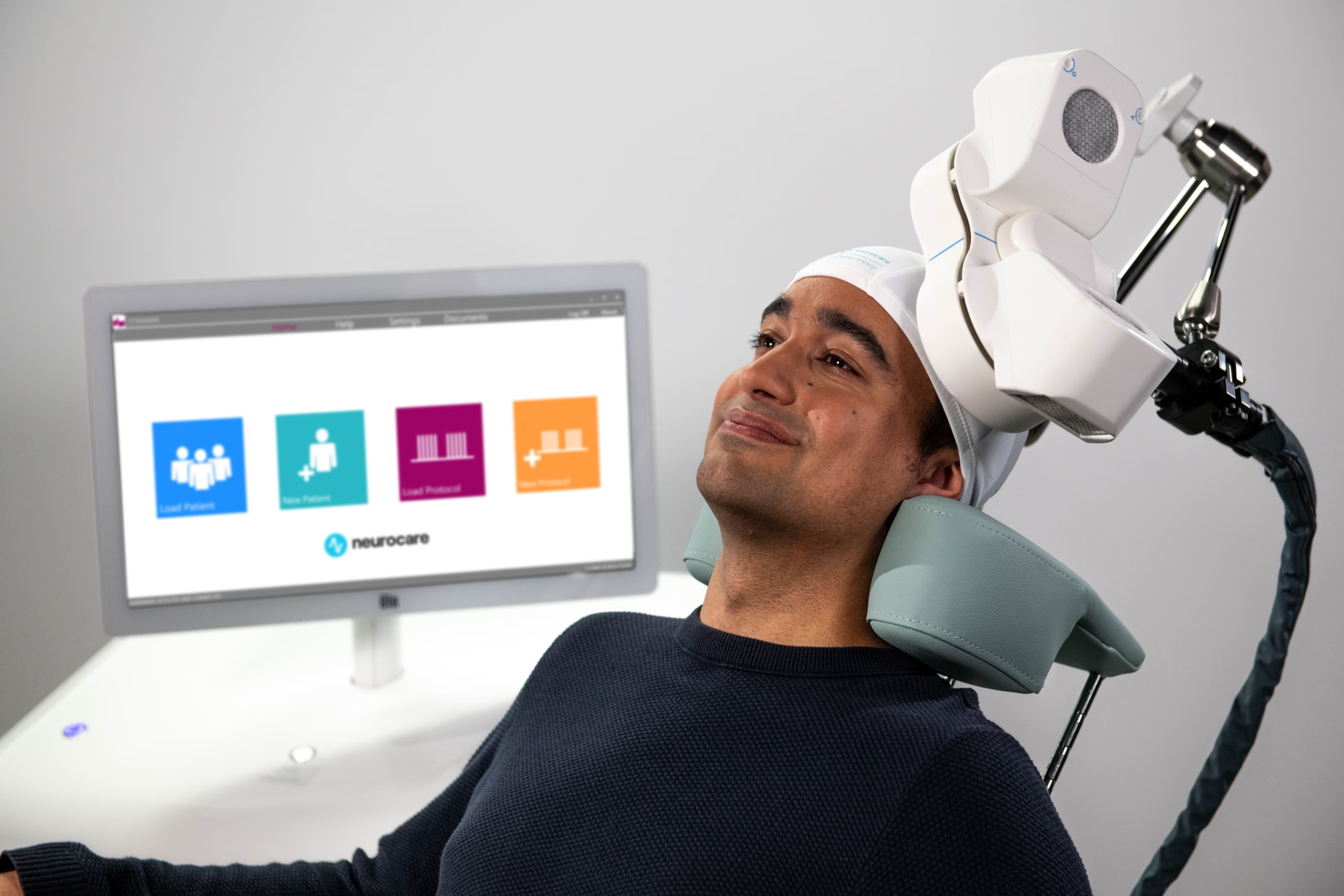Are you searching for revolutionary mental health treatments that can truly transform your life? Look no further. In this article, we will explore how Alium Health leverages the powerful treatments of TMS Therapy and the groundbreaking Spravato drug to revolutionize mental health care.
What is TMS Therapy?
Transcranial Magnetic Stimulation (TMS) therapy is a groundbreaking treatment for various mental health conditions, primarily depression. It utilizes magnetic fields to stimulate nerve cells in specific regions of the brain responsible for mood regulation. This non-invasive procedure is performed in a clinical setting and does not require anesthesia, making it a convenient option for many patients.
During a typical TMS session, a device resembling a large magnet is placed on the patient’s scalp, delivering targeted magnetic pulses that penetrate the skull to influence brain activity. Research shows that TMS therapy significantly improves symptoms of depression, especially for individuals who have not responded well to conventional treatments such as antidepressants or psychotherapy.
The key advantages of TMS therapy include minimal side effects compared to traditional medications. Common side effects, such as mild discomfort at the treatment site or headaches, are usually transient. Additionally, TMS sessions typically last around 20 to 40 minutes, allowing patients to return to their daily activities immediately afterward. Alium Health’s skilled professionals ensure a seamless, patient-focused experience.
Understanding the Spravato Drug
Spravato, the brand name for esketamine, is a novel medication revolutionizing treatment-resistant depression (TRD). Approved by the FDA in 2019, Spravato is administered as a nasal spray, offering a fast-acting alternative to traditional oral antidepressants. Unlike conventional medications, which may take weeks to show effects, Spravato provides rapid relief—often within hours.
Spravato works differently from traditional antidepressants. Instead of targeting serotonin or norepinephrine pathways, it influences the glutamate system, enhancing synaptic connections and promoting neuroplastic changes in the brain. Patients receive Spravato in a clinical setting under healthcare supervision to monitor for potential side effects and ensure safety.
At Alium Health, Spravato is often combined with oral antidepressants to maximize therapeutic benefits. This comprehensive approach offers a lifeline to patients with TRD, fostering hope and measurable improvement.
The Impact of TMS Therapy on Mental Health Treatment
TMS therapy has redefined the landscape of mental health care, offering hope to individuals struggling to find effective relief from depression and anxiety. Traditional treatments may not yield satisfactory results for everyone, but TMS provides a safe, effective alternative with minimal side effects. Patients at Alium Health experience significant symptom reduction and an enhanced quality of life.
Clinical studies reveal that TMS therapy’s effects are long-lasting. Many patients report sustained relief even after completing their treatment course. Additionally, the non-invasive nature of TMS makes it a more appealing option compared to medications, which often come with systemic side effects. Alium Health’s expertise ensures tailored treatment plans that align with patients’ unique needs.
How Spravato is Revolutionizing Mental Health Treatment
Spravato introduces a novel approach to managing TRD, affecting millions worldwide. For patients who have tried multiple antidepressants without success, Spravato offers rapid relief, which is especially critical for those experiencing acute suicidal thoughts or severe depressive episodes.
The nasal spray’s ease of administration and the supportive clinical environment at Alium Health simplify the treatment process. This accessibility bridges the gap for patients who feel overwhelmed by complex treatment regimens. When combined with TMS therapy, Spravato amplifies positive outcomes, addressing depression’s multifaceted nature and fostering meaningful improvements.
TMS Therapy vs. Traditional Treatments
Comparing TMS therapy to traditional treatments highlights its unique benefits. While conventional antidepressants may take weeks to show effects and can cause significant side effects, TMS provides faster relief with a better-tolerated side effect profile. Alium Health’s TMS sessions are non-invasive, outpatient procedures that fit seamlessly into patients’ schedules.
Patients who struggle with the adverse effects of traditional medications often find TMS therapy to be a more sustainable option. This innovative approach complements or, in some cases, replaces traditional methods, offering a more diverse and effective mental health care toolkit.
Who Can Benefit from TMS Therapy and Spravato?
TMS therapy and Spravato are ideal for individuals with treatment-resistant depression. Patients who have tried multiple medications or therapies without significant improvement are excellent candidates. Additionally, TMS therapy has shown promise in treating anxiety disorders, OCD, and PTSD. Spravato also demonstrates potential benefits for anxiety and PTSD, making these treatments versatile tools in mental health care.
Alium Health’s experts conduct comprehensive evaluations to determine the best course of action, ensuring patients receive personalized care. By combining cutting-edge therapies like TMS and Spravato, Alium Health is empowering individuals to take control of their mental health.
The Process of Undergoing TMS Therapy
The TMS therapy journey at Alium Health begins with a consultation to evaluate medical history, symptoms, and treatment goals. Once deemed appropriate, a treatment plan is created, typically involving sessions five days a week for four to six weeks.
During sessions, patients sit comfortably as a TMS device delivers magnetic pulses to targeted brain areas. The process is painless and allows immediate resumption of daily activities. Regular follow-ups ensure optimal progress, with open communication fostering a supportive treatment experience.
Potential Side Effects and Risks of TMS Therapy and Spravato
TMS therapy’s side effects are generally mild, including temporary discomfort at the treatment site or headaches. Rarely, more severe effects like mood changes or seizures occur. Spravato may cause dissociative symptoms, sedation, or nausea, emphasizing the importance of clinical monitoring.
Alium Health’s commitment to safety ensures that every patient receives thorough assessments and monitoring throughout their treatment journey. This attention to detail minimizes risks and maximizes therapeutic benefits.
Cost and Availability of TMS Therapy and Spravato
The cost of TMS therapy and Spravato varies by location, provider, and insurance coverage. While both treatments are often out-of-pocket expenses, many insurers are beginning to cover them for treatment-resistant depression. Alium Health assists patients in navigating these financial considerations, ensuring access to transformative care.
Alium Health is leading the way in innovative mental health treatments with TMS therapy and Spravato. These groundbreaking solutions offer hope and healing, empowering patients to reclaim their lives and embrace brighter futures. If you’re ready to explore cutting-edge mental health care, contact Alium Health today.
Conclusion: The Future of Mental Health Treatment with TMS Therapy and Spravato
The future of mental health treatment appears promising with the advent of innovative therapies like TMS and Spravato. As traditional methods of treating mental health conditions continue to have limitations, the emergence of these alternatives offers renewed hope for individuals struggling with treatment-resistant depression and other mental health disorders. The combination of TMS therapy and Spravato has the potential to enhance treatment outcomes significantly, providing patients with effective options that prioritize their well-being.
As research advances and more studies emerge, the understanding of these treatments will continue to evolve. Ongoing clinical trials may uncover additional benefits and applications for TMS therapy and Spravato, expanding their reach to broader populations. The growing acceptance of these therapies within the medical community also signifies a shift towards a more integrative approach to mental health care, where treatments are tailored to the unique needs of each patient.
In conclusion, as we look toward the future, it is clear that TMS therapy and Spravato are set to play pivotal roles in the landscape of mental health treatment. By embracing these innovative and effective approaches, patients can find the hope and support they need to reclaim their lives and achieve lasting mental well-being. As awareness of these therapies spreads, the opportunity for transformative change in mental health care is within reach.




